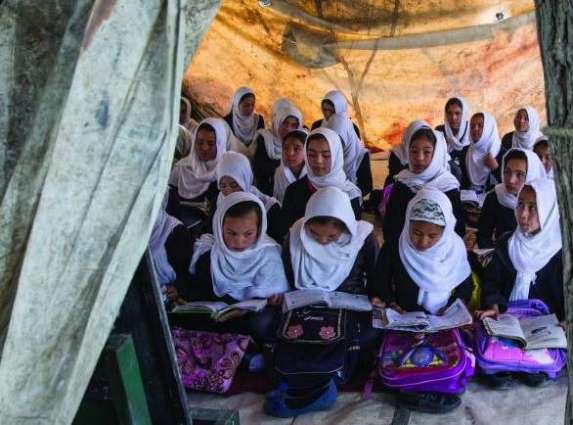Afghanistan's southeastern province of Paktika is facing a severe lack of female doctors due to the nation's long-term war against girls' education, which has consequently created a real crisis for local women who cannot receive care from male doctors and thereby cannot be treated in the majority of health centers
SHARAN (Pakistan Point News / Sputnik - 31st March, 2020) Afghanistan's southeastern province of Paktika is facing a severe lack of female doctors due to the nation's long-term war against girls' education, which has consequently created a real crisis for local women who cannot receive care from male doctors and thereby cannot be treated in the majority of health centers.
Locals draw attention to the fact that there has been no specialist female doctors in Sharan, the capital of Paktika, since the last one quit for unknown reasons.
"We have not had a specialist female doctor in the [provincial] capital of Sharan in the past years, then we found one that was from another province," Bakhtiar Hemmat, who herself used to be the only female doctor in the province for years, told Sputnik.
With this doctor now leaving her job, problems with diagnosing and treating diseases among women are mounting, according to Hemmat.
Local residents have complained about the shortage or absolute lack of female health professionals as well.
"Instead of a specialist doctor, we ask medical assistance from nurses who have no experience and advanced education. They cannot diagnose correctly, cannot understand the patient's condition," Manawar Mubarez, a Paktika resident, told Sputnik.
The Paktika Public Health Department argued that there were female doctors in 54 health centers in the province, and that it could not find female specialists to fill the many positions that were still vacant.
"Women are working in all nurse and midwifery posts in Paktika province, but 12 posts for specialist doctors are vacant and we cannot find anyone to work on these posts," Paktika Public Health Director Asad Rasuli told Sputnik.
GIRLS SHOULD FIRST GET EDUCATION
The problem behind this crisis is the country's long war against girls' education. Under the Taliban rule, women were banned from attending school and working. Though the situation has now improved, only 37 percent of adolescent girls are literate, compared to 66 percent of adolescent boys, according to Human Rights Watch's 2017 report.
UNICEF said that 60 percent of out-of-school children in Afghanistan are girls, with the situation greatly varying across the country. Paktika, for instance, has very few schools for girls. Women constitute only 1 percent of the teachers in this province, while in Kabul the figure is 67 percent, HRW said.
Another factor is that two out of 18 Paktika districts are still being fully controlled by the Taliban, with the movement retaining a large presence in eight others. Local traditions also discourage girls and women from getting an education.
The situation with the shortage of female doctors therefore is not surprising as they cannot appear in a province that does not have girls going to school or graduating from universities, Muska, a girl from Paktika, told Sputnik.
The Paktika education department reports that the districts of Yousuf Khil, Urgun and Zarghun Shar do have girls' schools, but Sharan itself does not. Therefore, not a single girl has graduated from the 12th grade in the capital. However, the authorities have pledged to build a high school in the capital this year.
"There [in Sharan] were some problems with building a school for girls. But this year, we have reassured the people that we will build a school," Paktika education director Mehrabuddin Shafaq told Sputnik.
Paktika Provincial Council Chairman Bakhtiar Hemat admitted that there was a real problem with girls' education.
"We have problems with girls' education, there are no schools and no school buildings. Paktika is a border province with 18 districts, and villages are very populous or big. They lack schools, and education opportunities for girls are low," Hemat told Sputnik.
Moreover, many girls drop out of school due to the absence of female teachers in Paktika, according to local resident Shakila.
"Little girls get an education at home, but because of the lack of female teachers, people do not want to send girls to school ... When a girl gets older, families don't allow them to go to school," Hemat added.
He noted that parents often fail to recognize that both boys and girls have the right to an education. But in line with local traditions, once a girl turns 13 her family usually bans her from going to school.
"Our demand or request is that we have here doctors and teachers and that everyone should know that it is women's right and they should be given an opportunity to study," Farzana, a local resident, told Sputnik.




